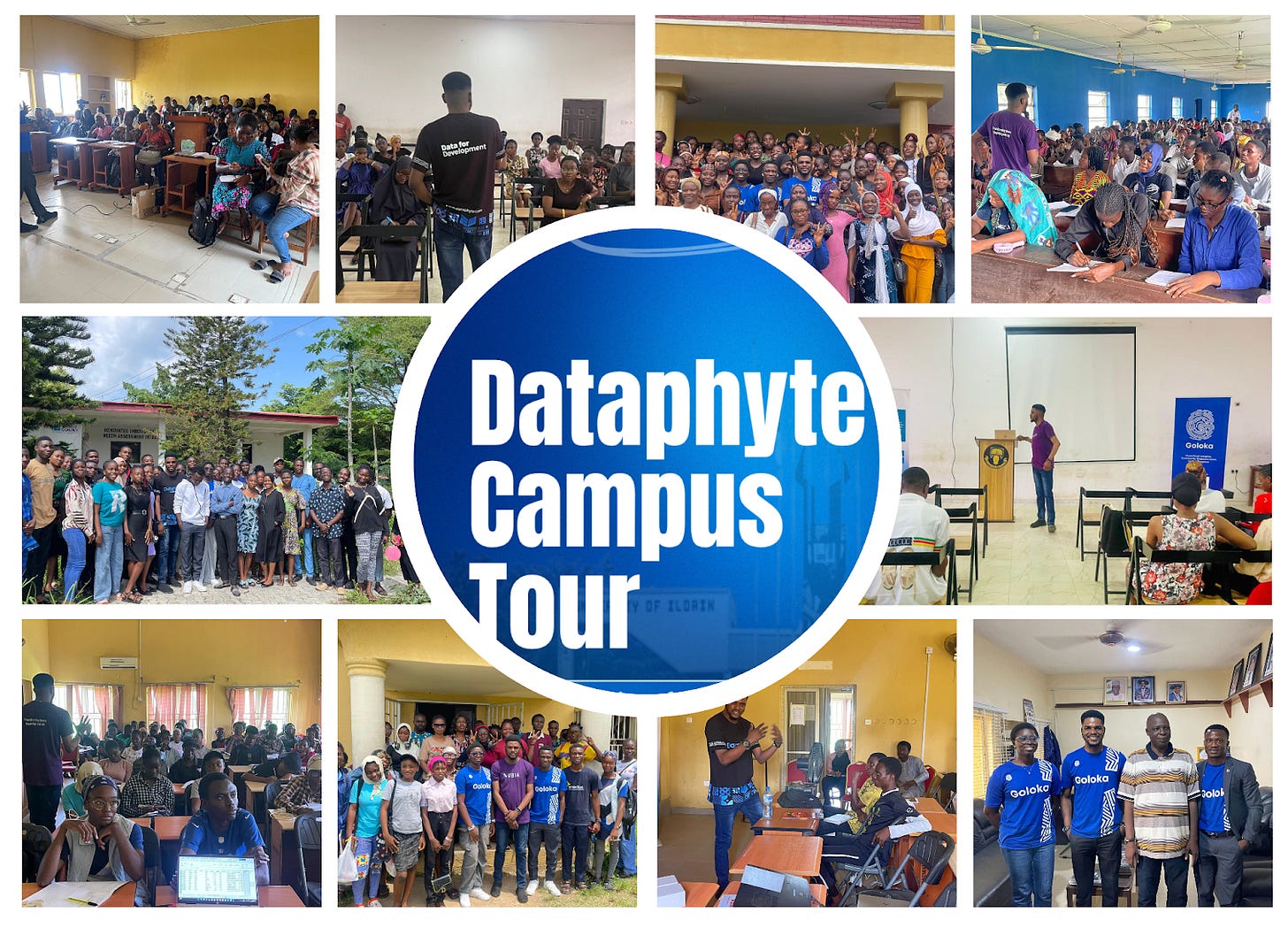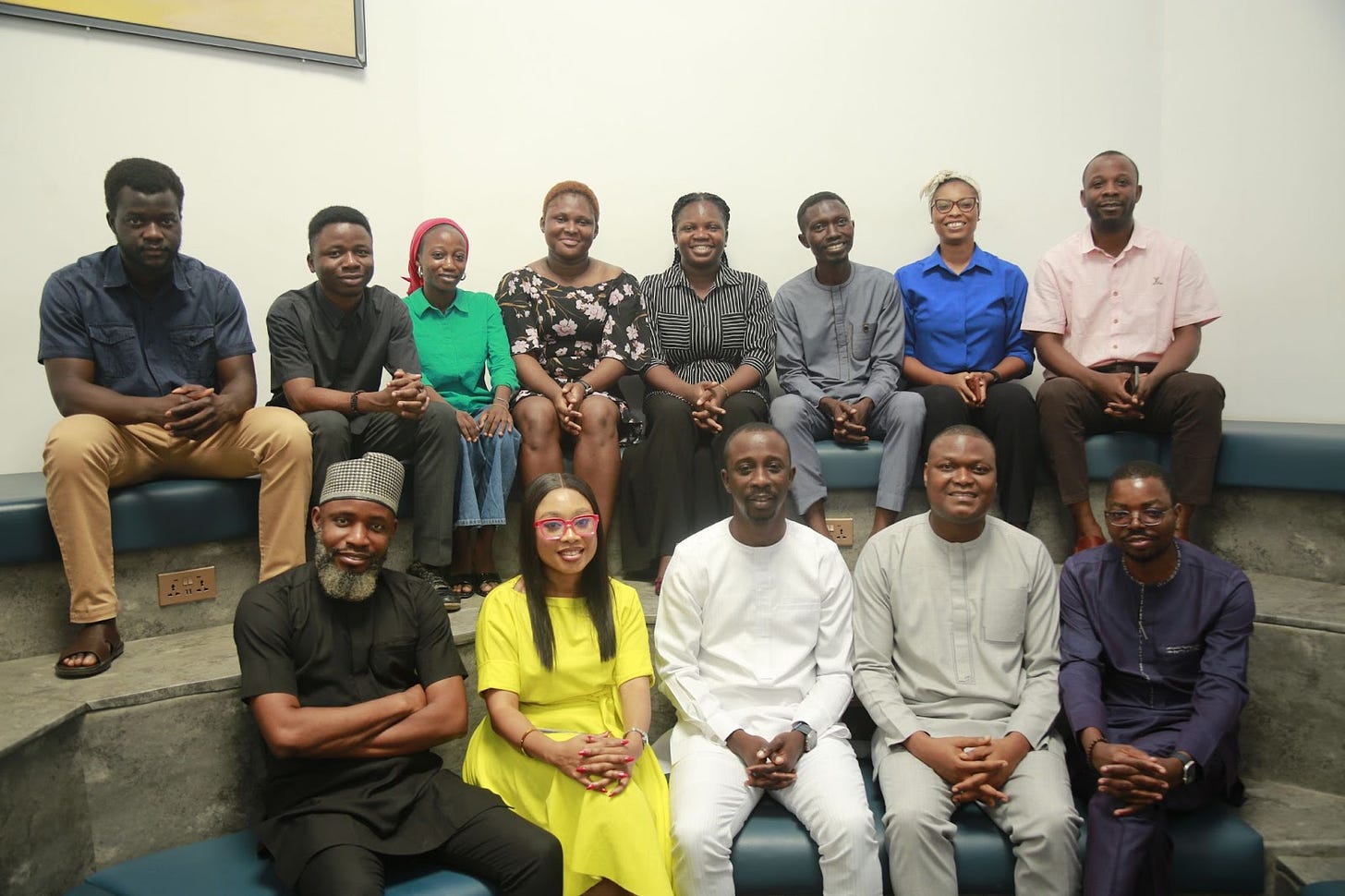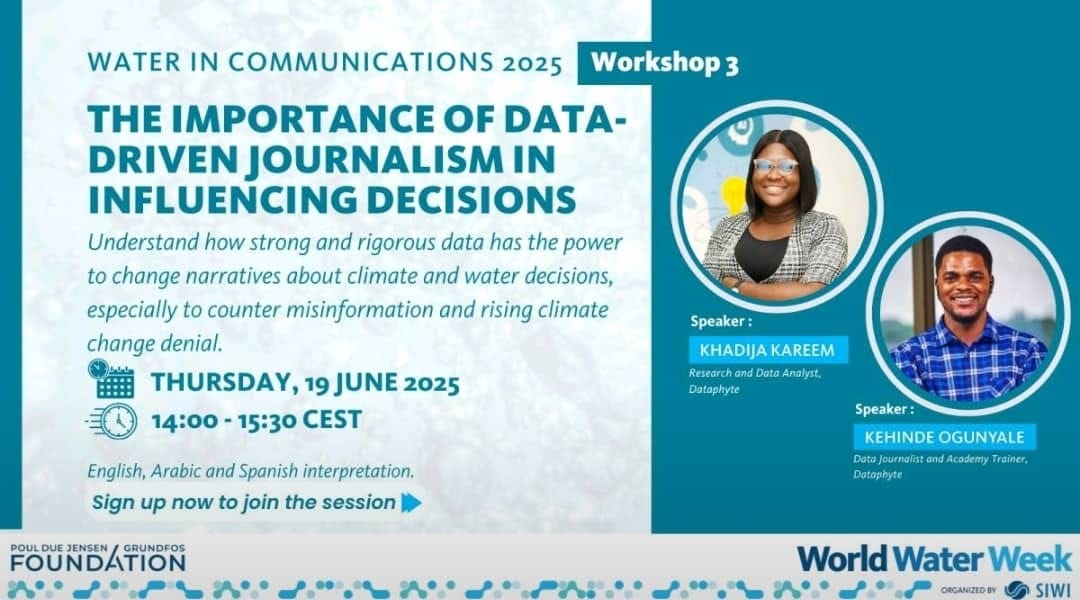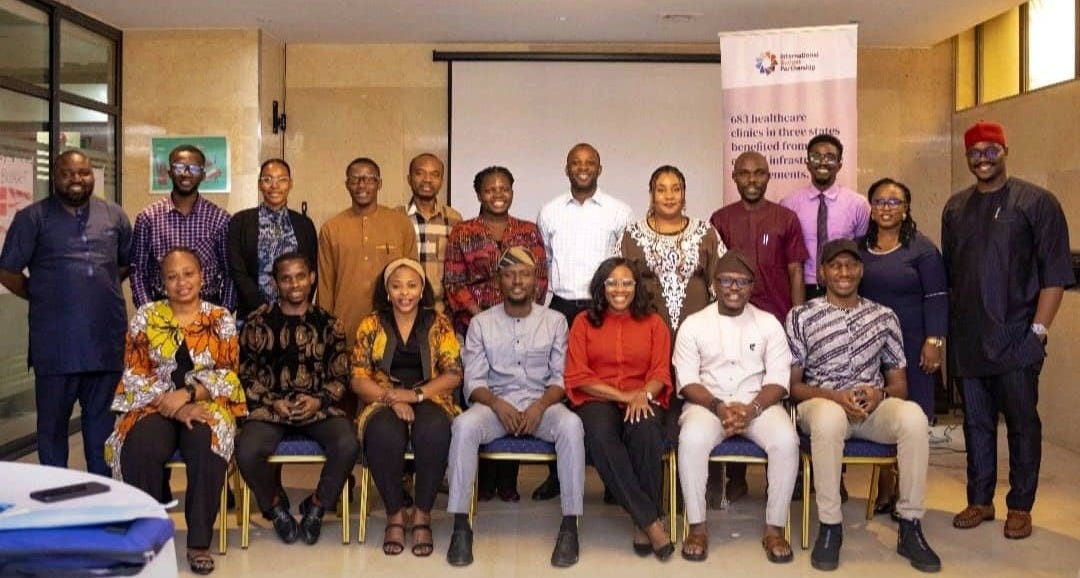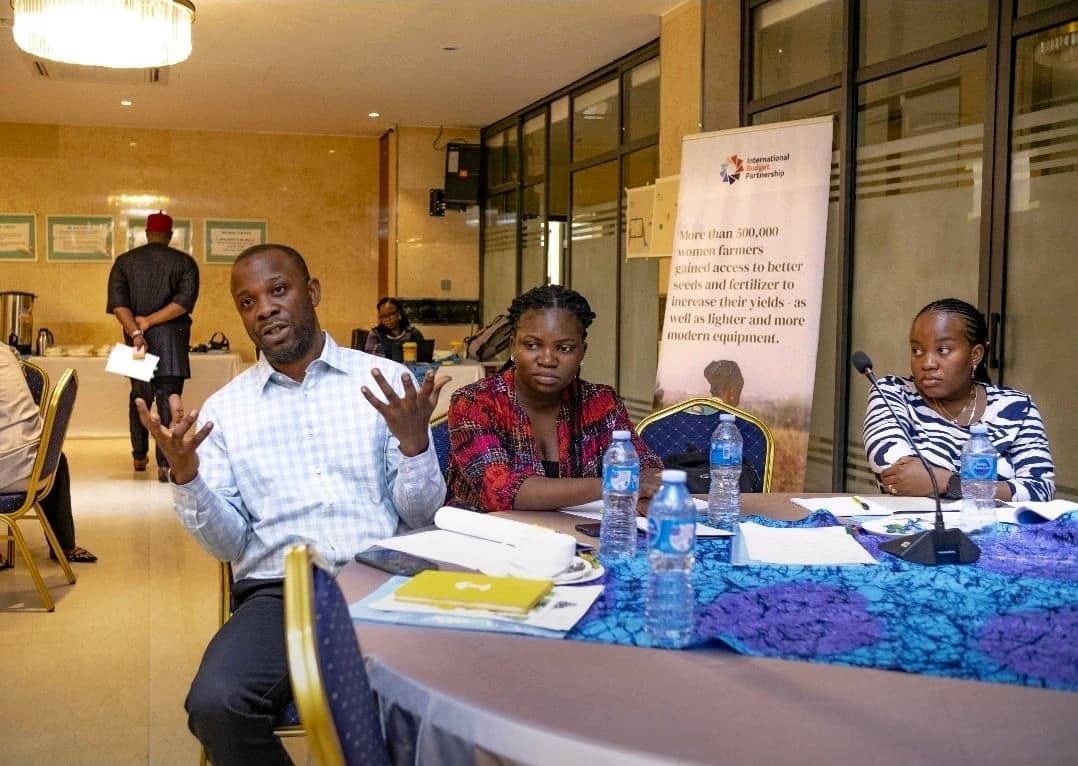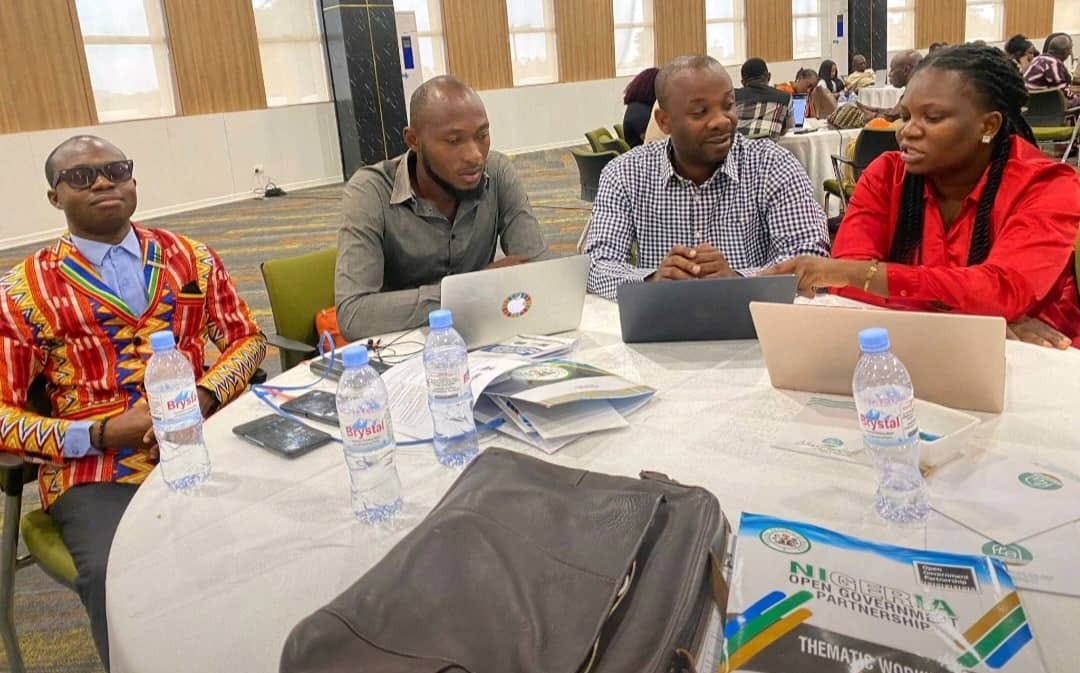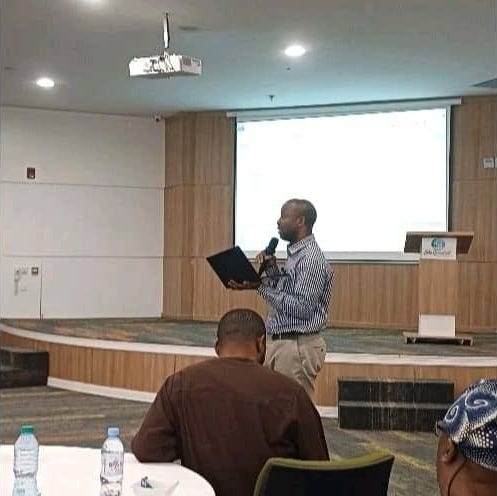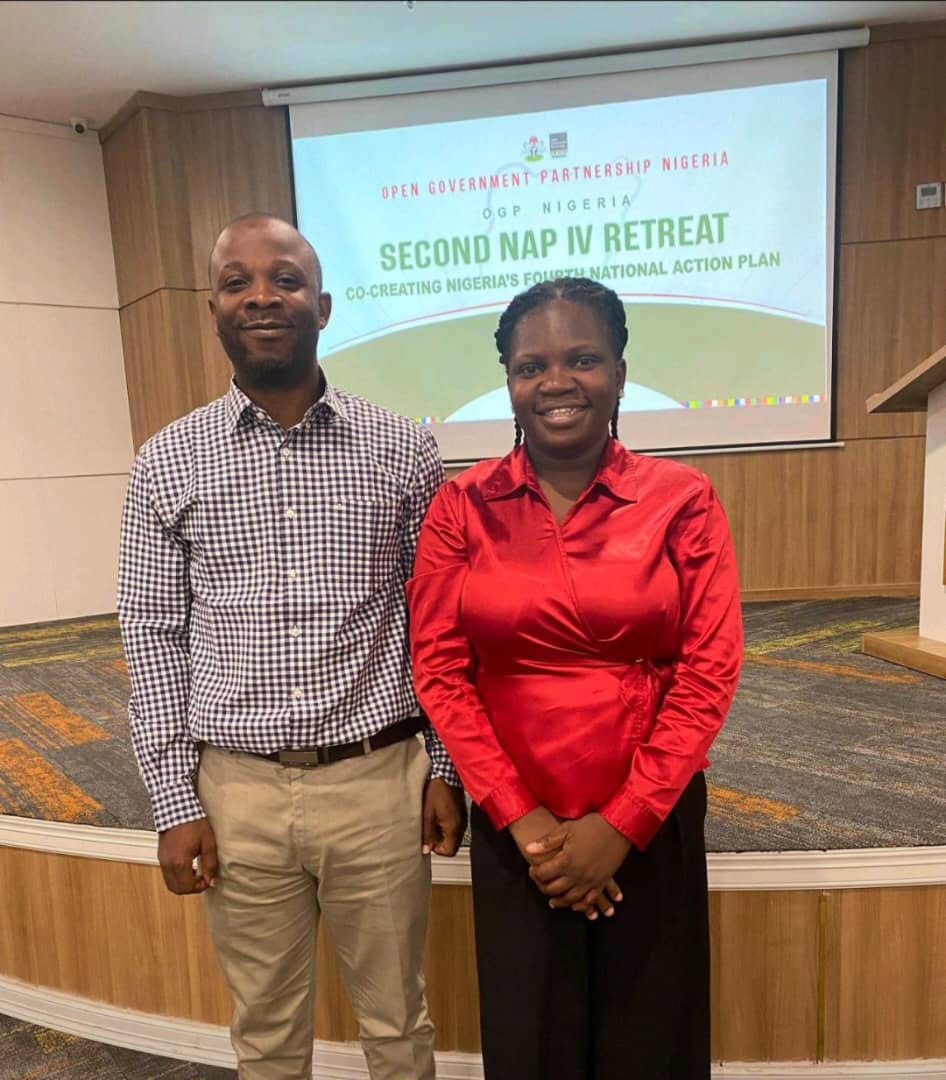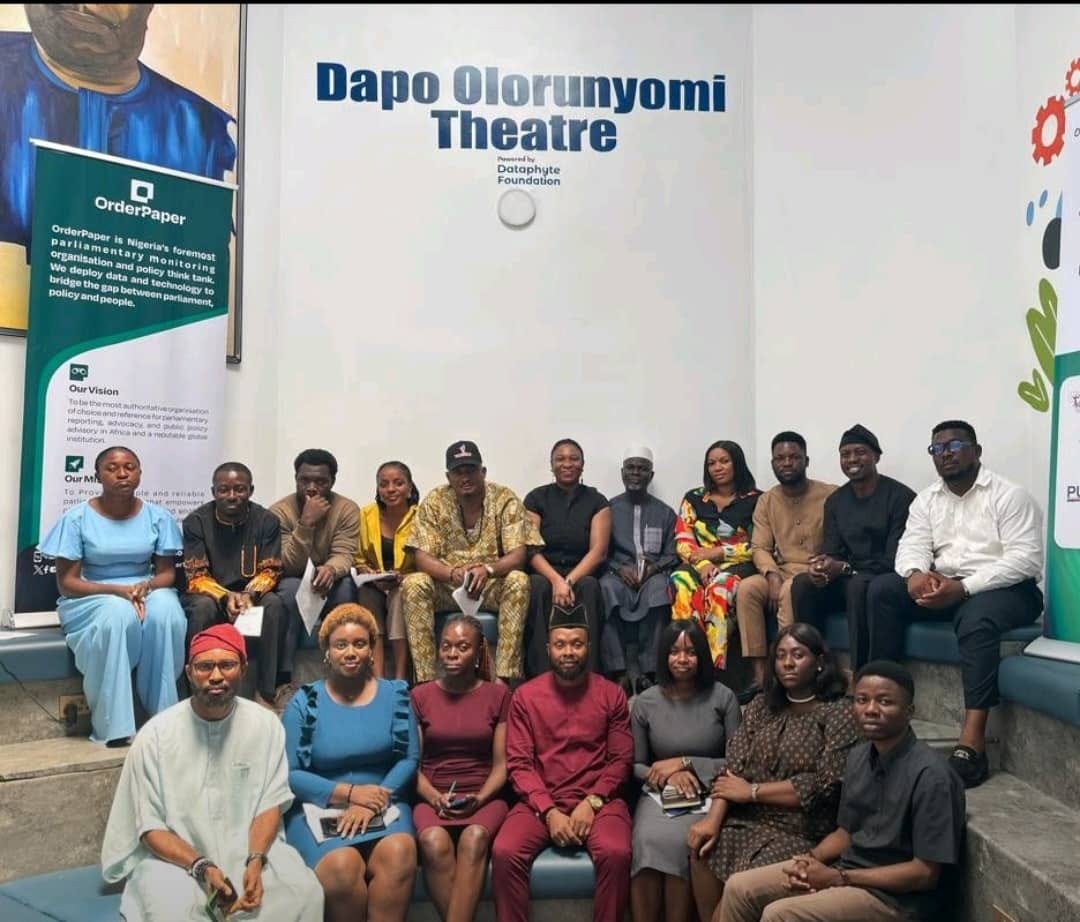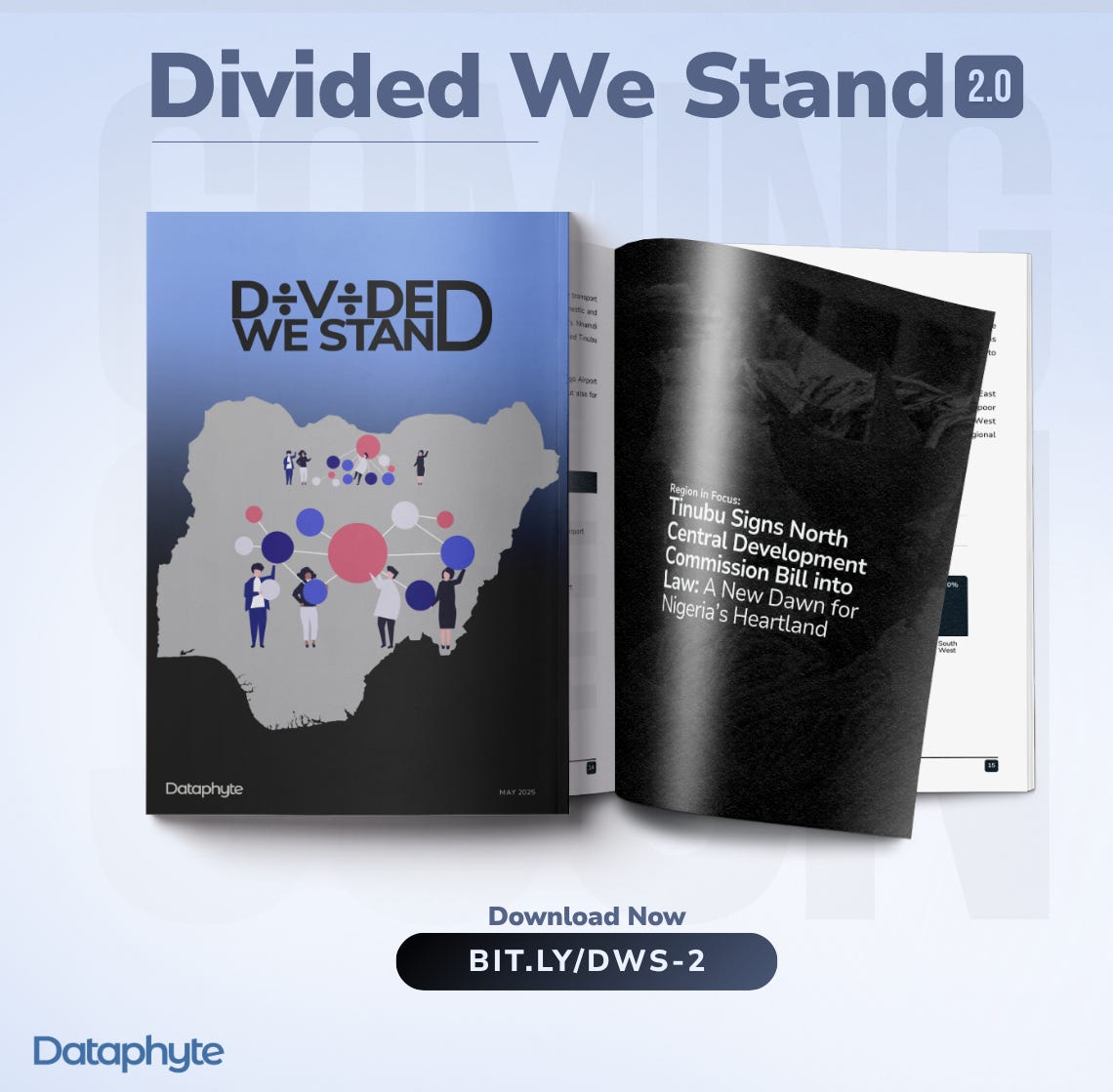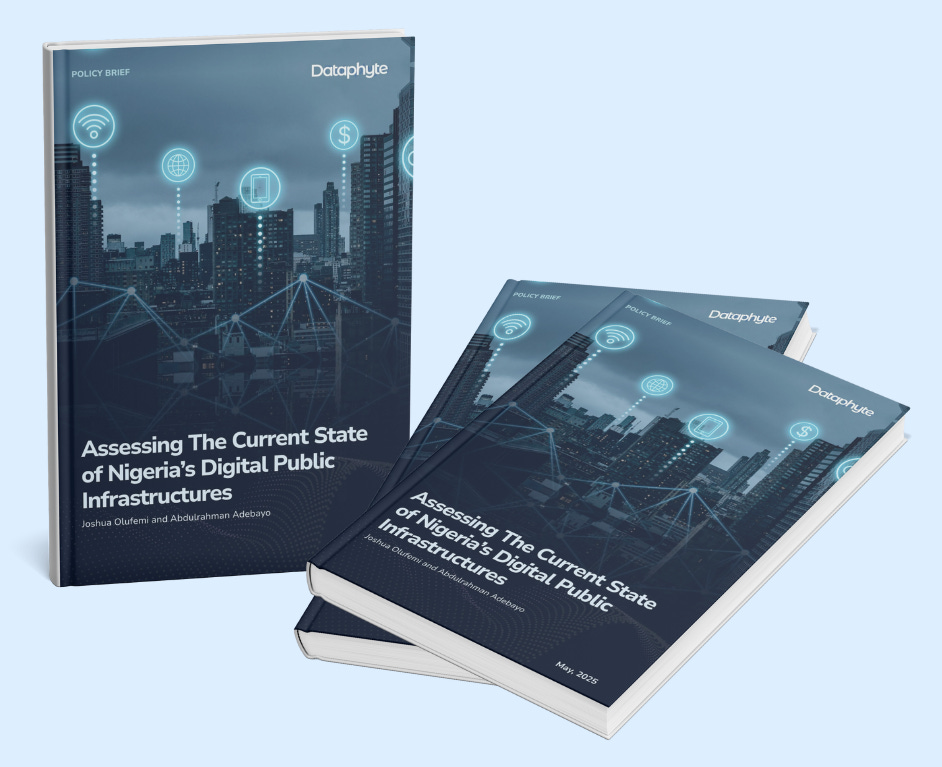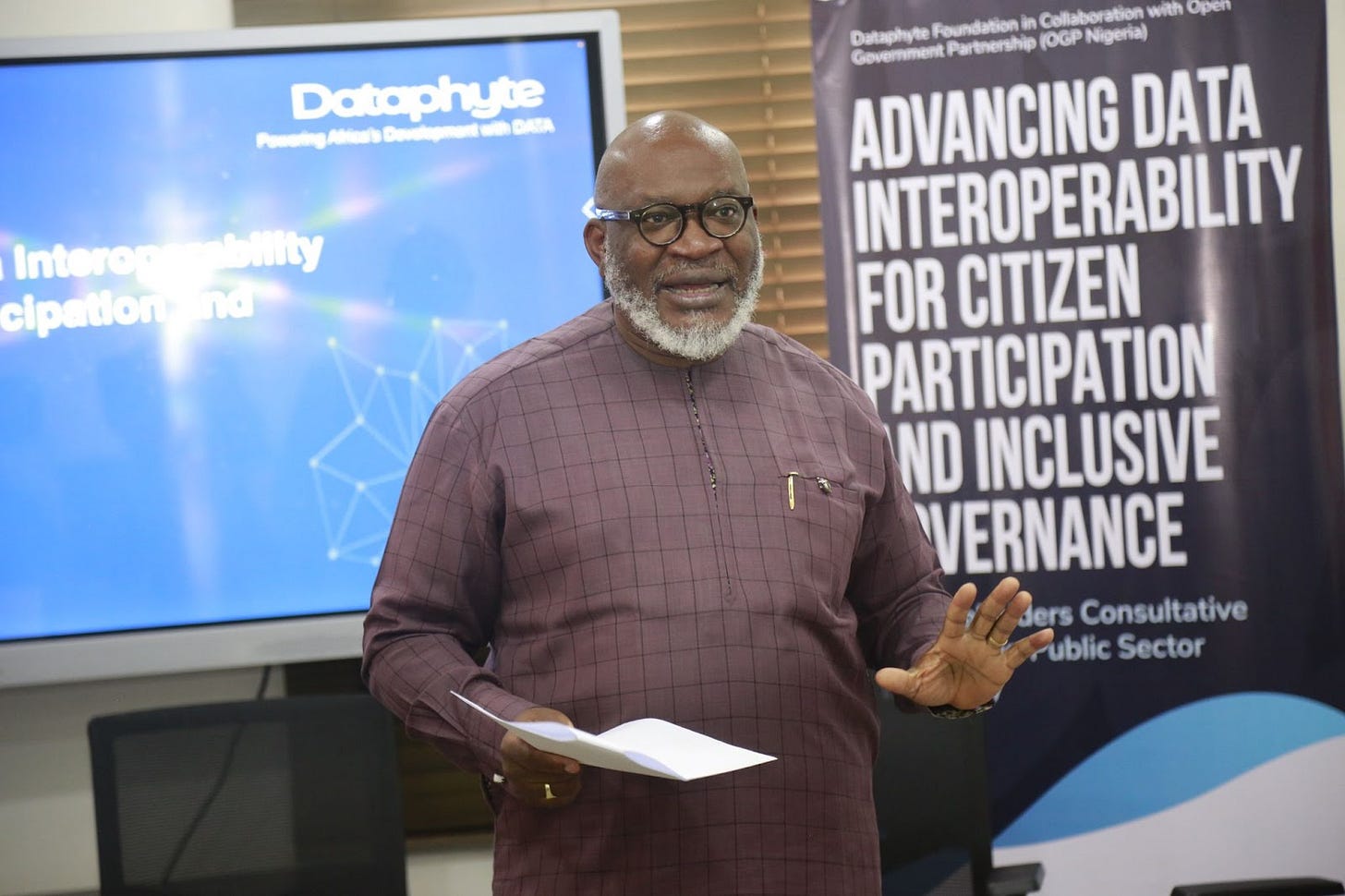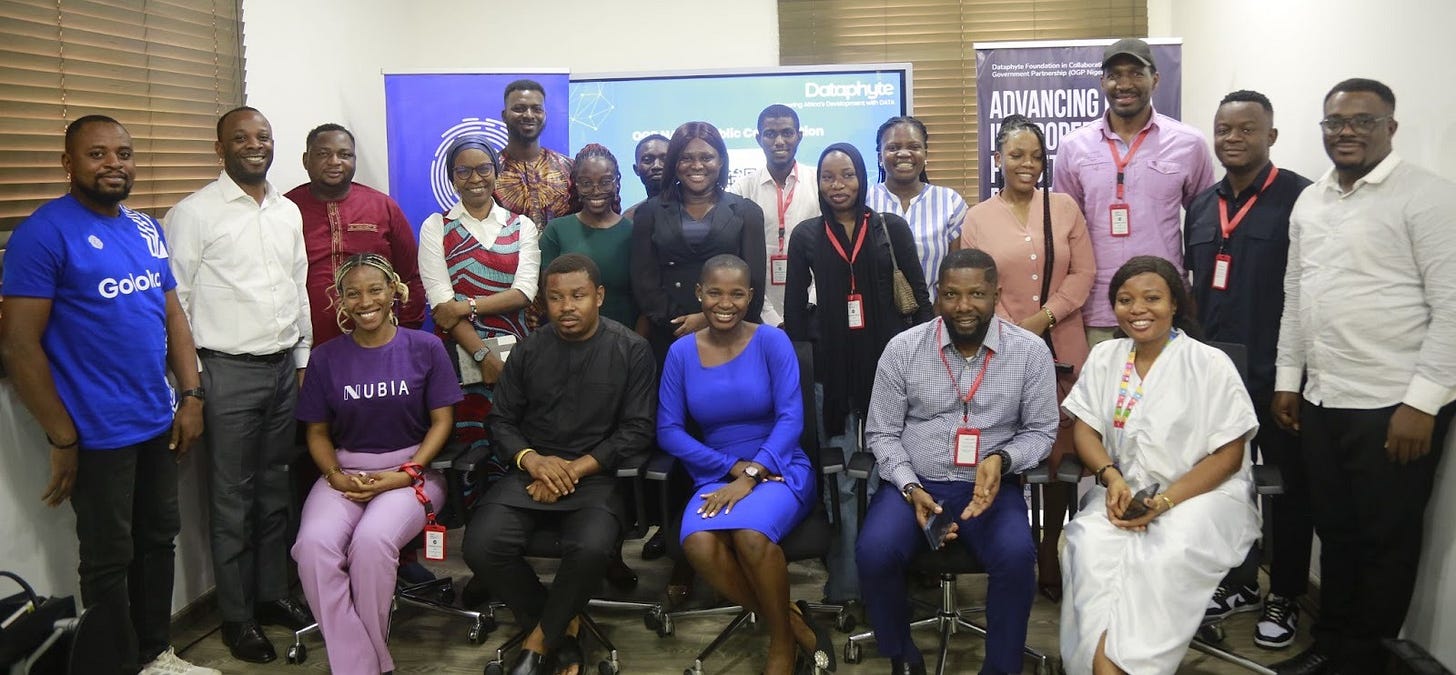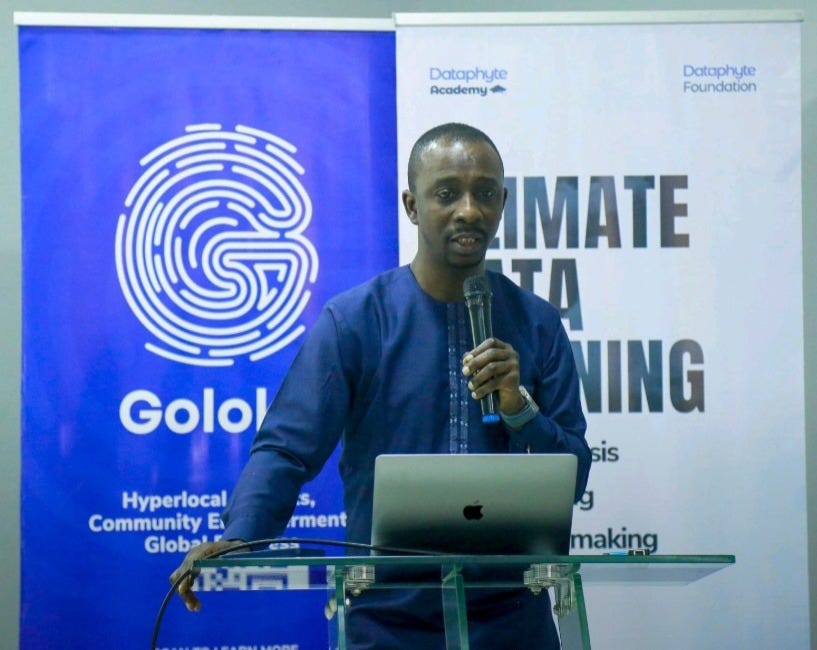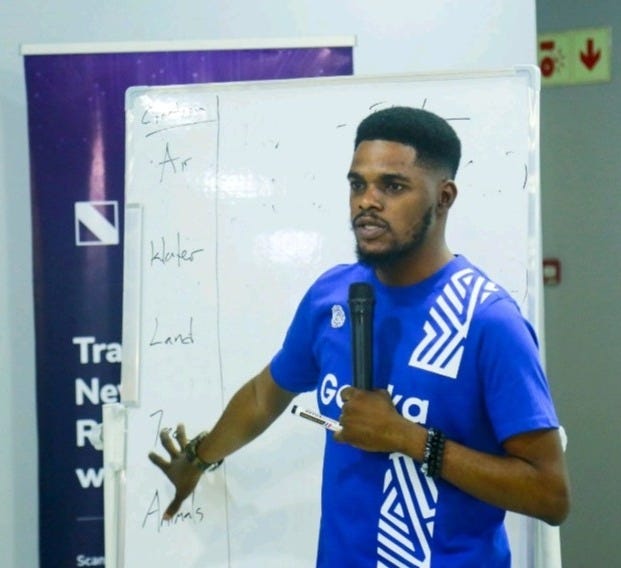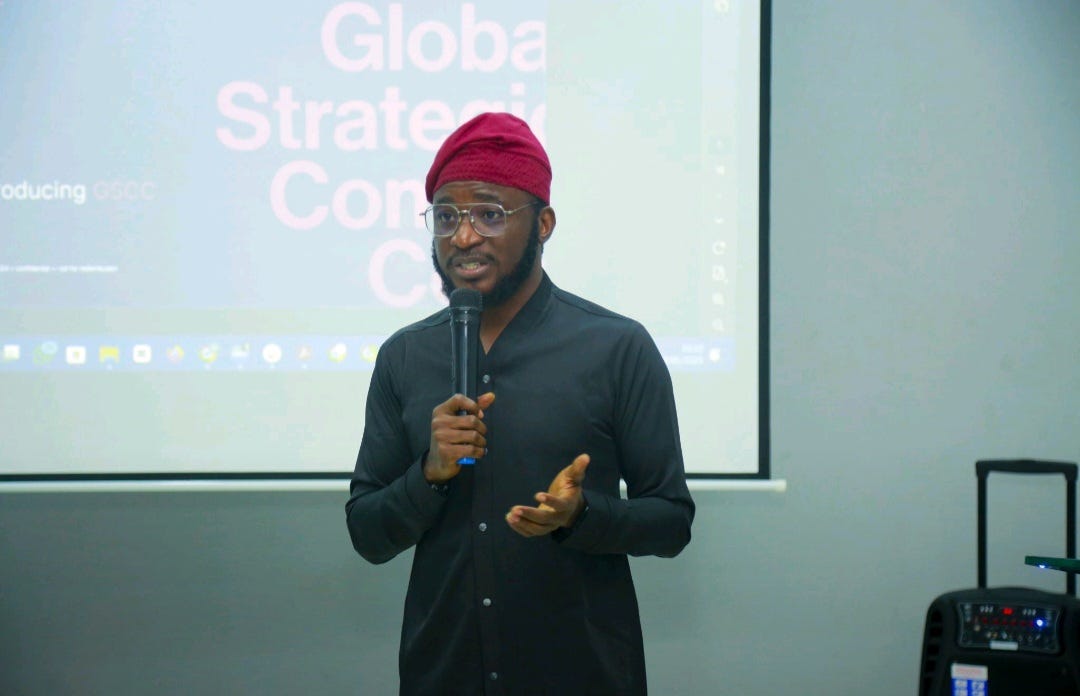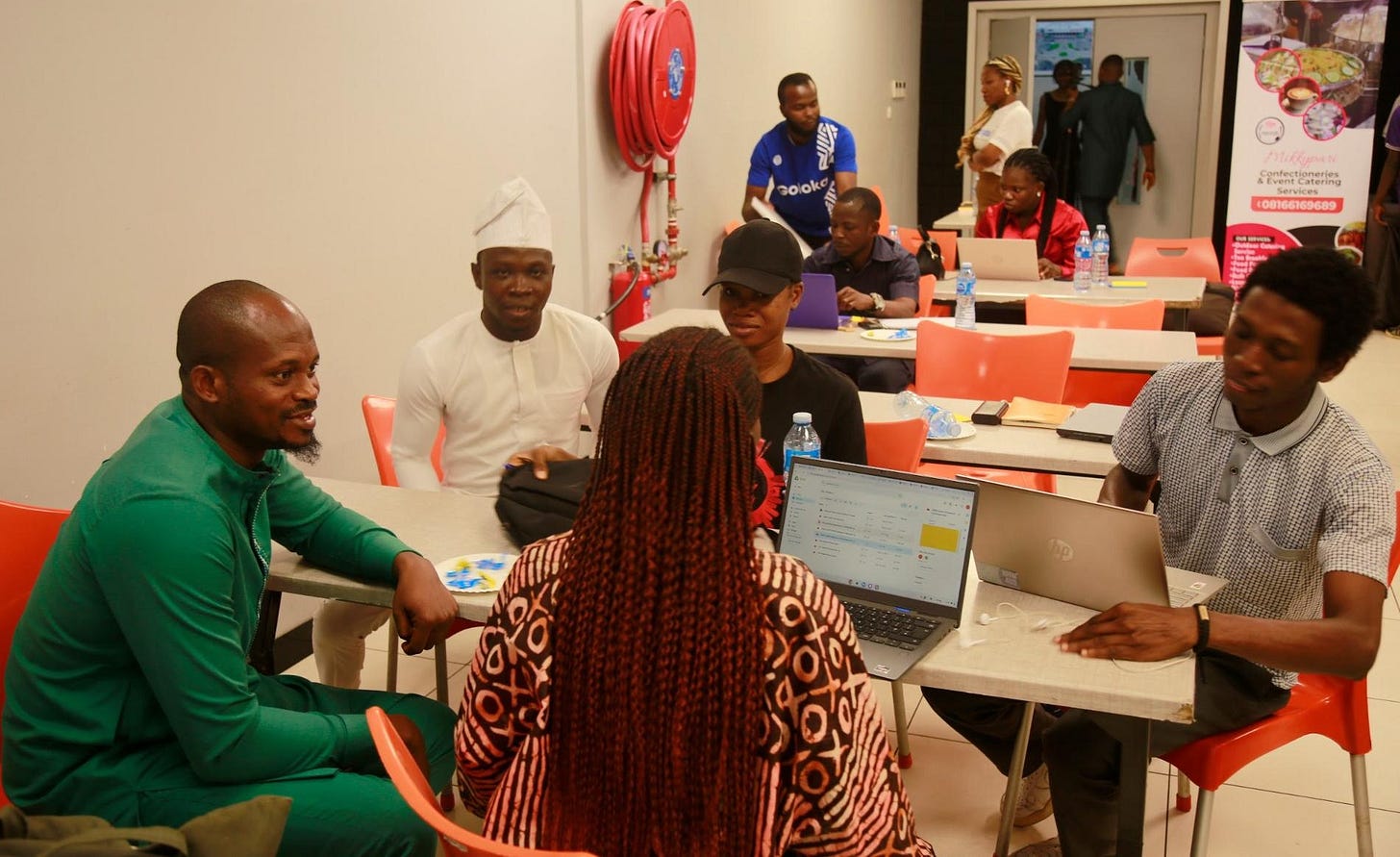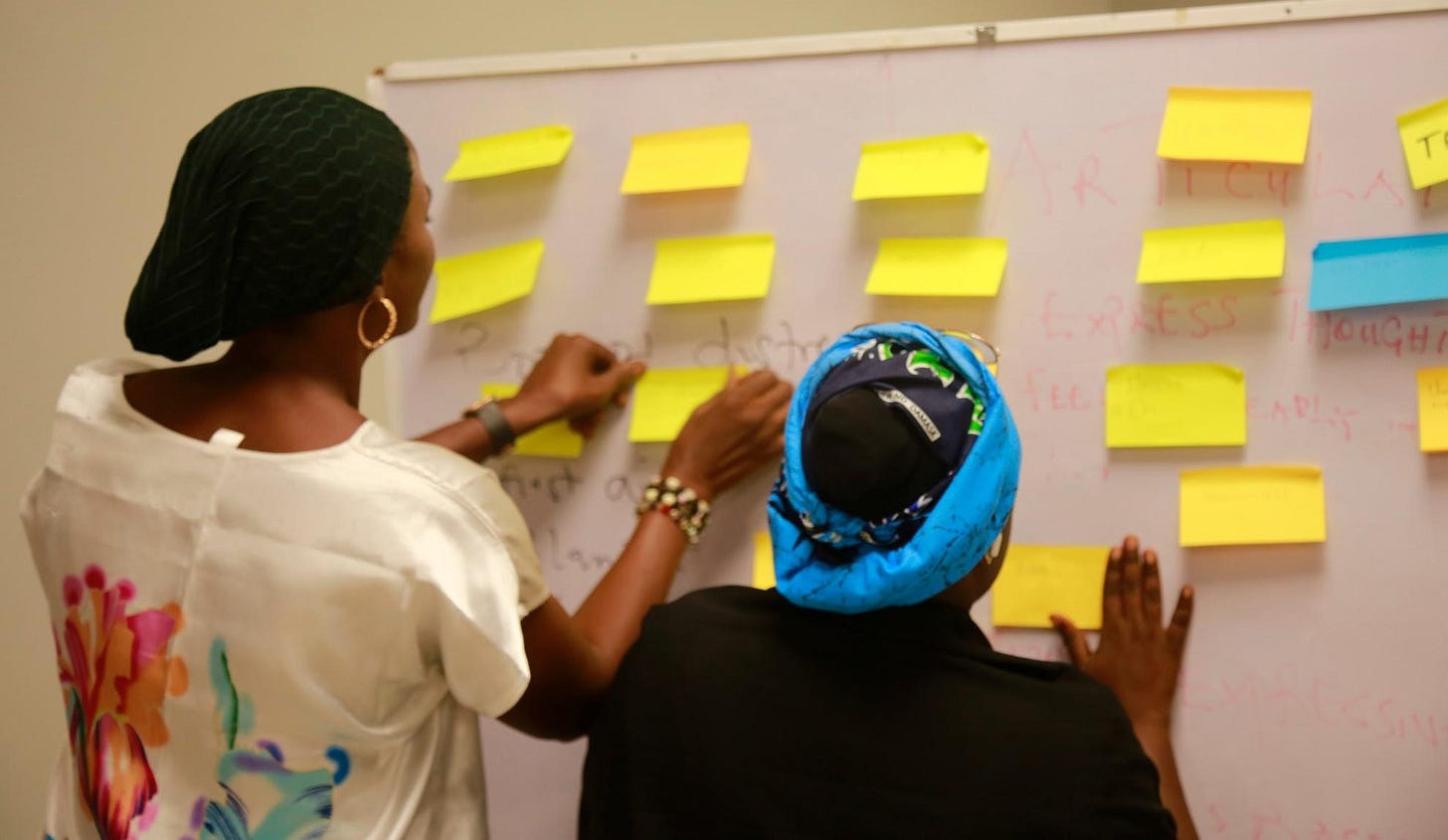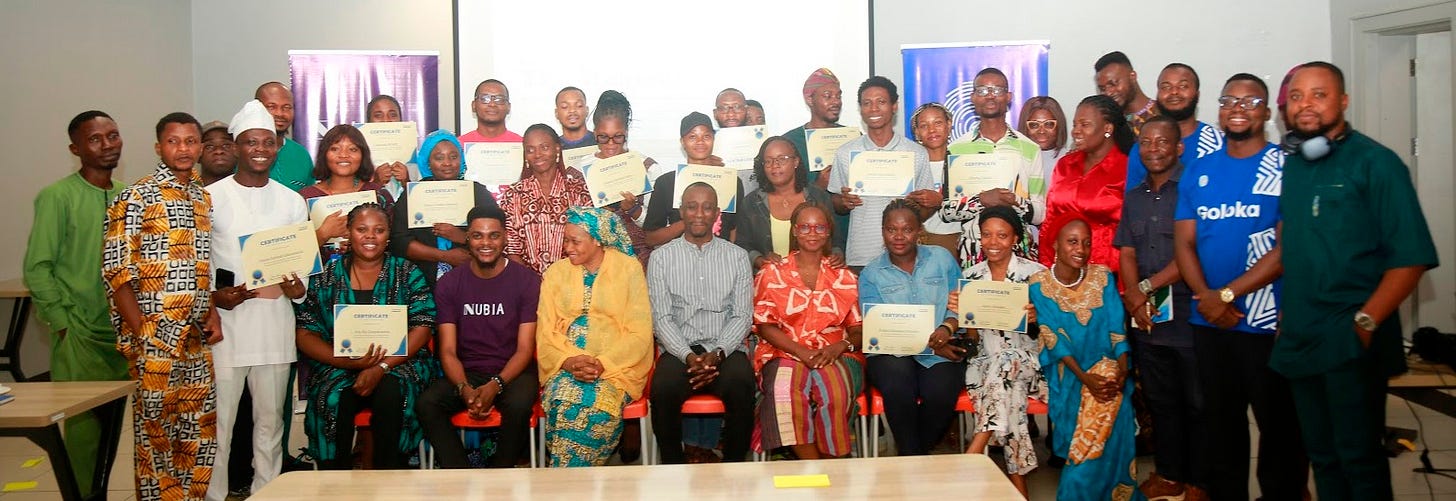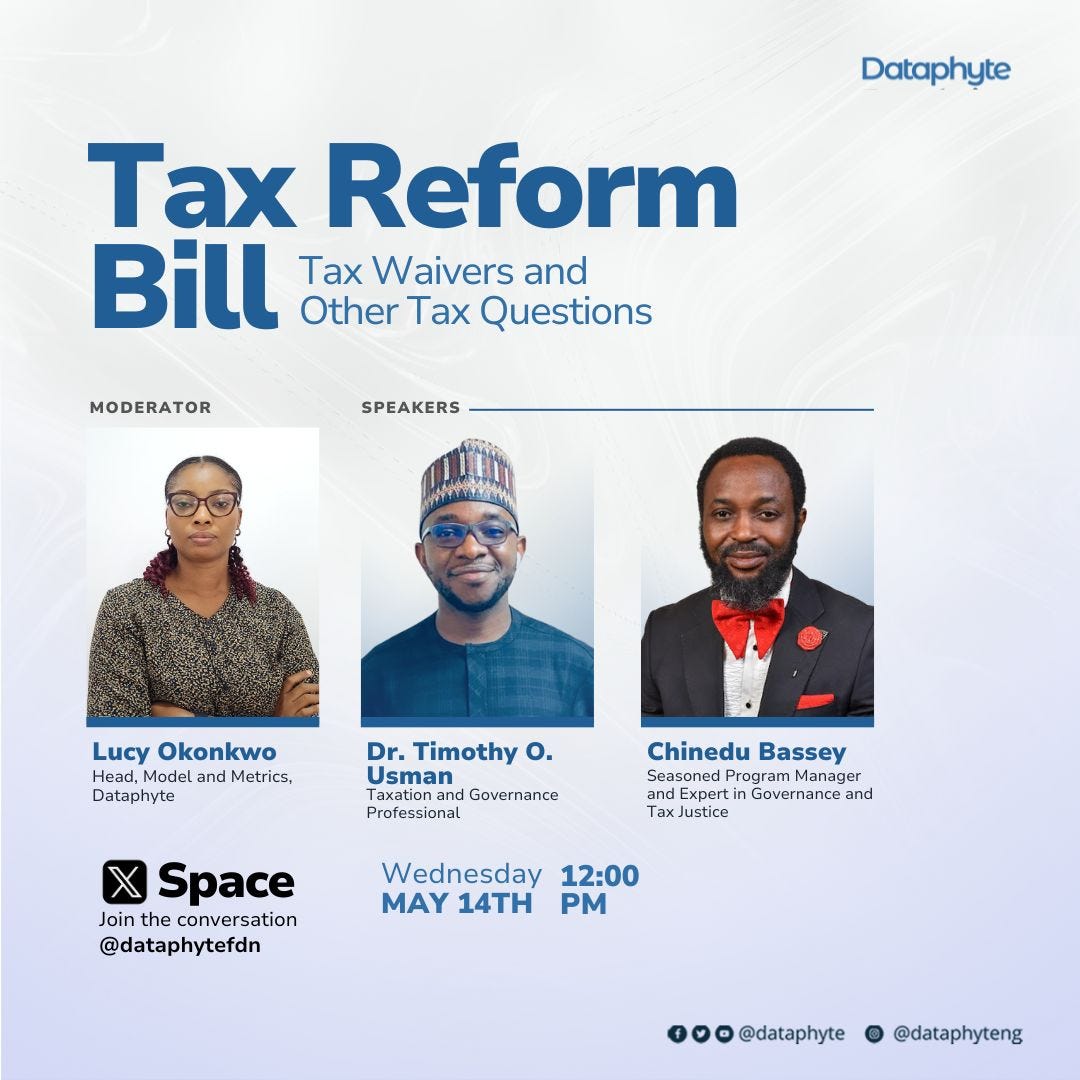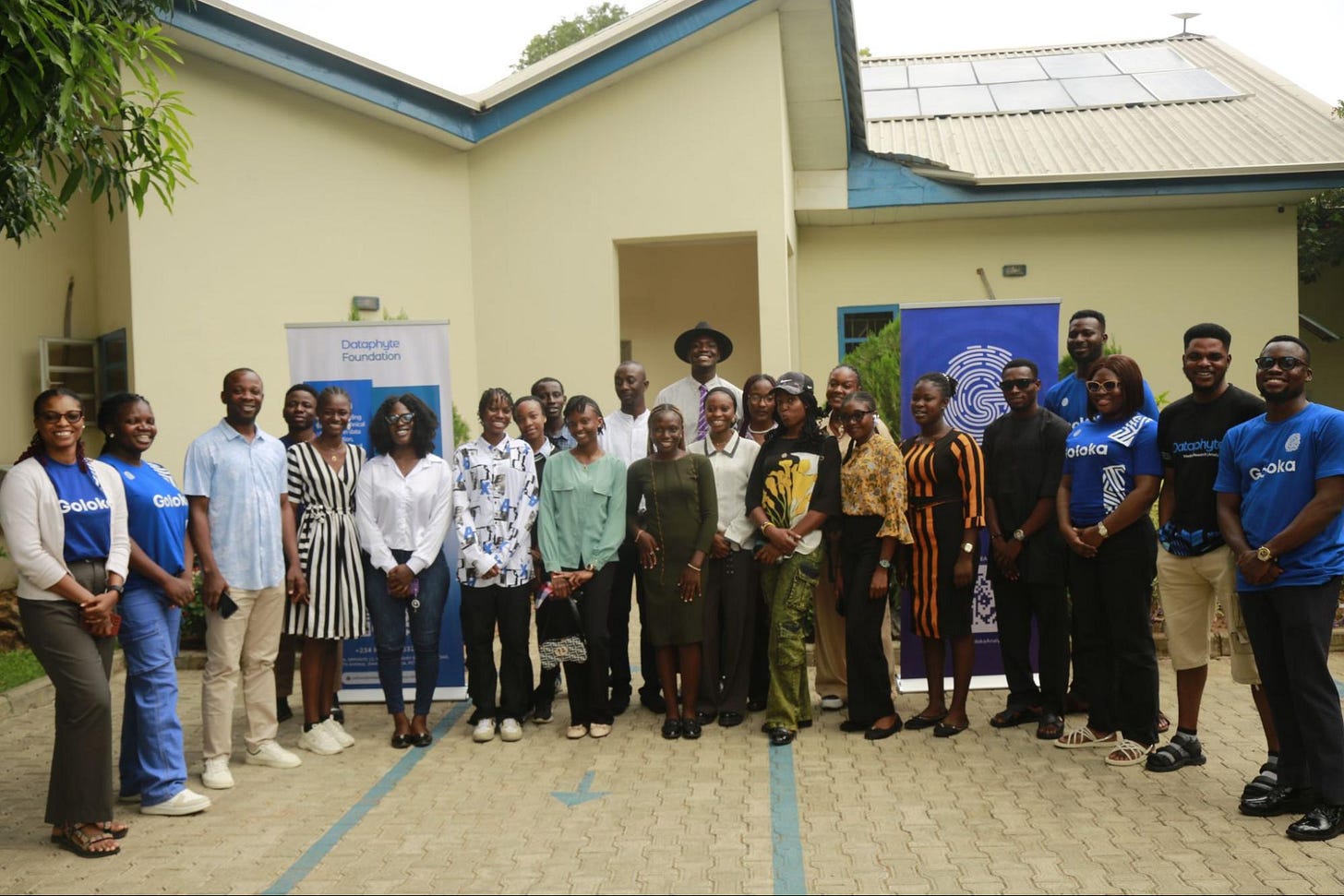May was full. June was purposeful. From university auditoriums to civic spaces, from policy dialogues to campus training, our teams kept showing up learning, building, asking better questions, and sharing what we found.
Across these two months, Dataphyte worked across platforms and sectors to transform data into tools for learning, civic participation, and public accountability. From research briefs and student workshops to multi-campus engagements and governance conversations, we remained focused on making insight useful.
This edition of Behind the Bytes brings together the highlights of what we built, explored, and shared in May and June.
June Recap
Dataphyte Academy: A Multi-Campus Tour Across the South-West
One of the standout activities in June was the multi-campus training tour carried out by the Dataphyte Academy team. The initiative, which reached six universities across South-West Nigeria, introduced over 400 students to foundational concepts in data journalism, media literacy, and artificial intelligence for civic engagement.
The training team, led by Kehinde Ogunyale, Jemima John-Udhe, and Ibrahim Yusuf, delivered tailored sessions designed to give students not only technical knowledge but also a practical understanding of how data can support transparency and accountability in governance.
At the University of Ilorin on June 3, students explored the fundamentals of data journalism and discussed the ethical use of AI in media.
At Obafemi Awolowo University (June 9–10), the training extended into two full days, incorporating hands-on data visualisation exercises, story development workshops, and group-based critique sessions.
The team continued to LASUSTECH (June 13–14) and Osun State University (June 16–17), where they facilitated practical exercises in digital storytelling and introduced tools for verifying open-source data.
The final stops at Adekunle Ajasin University (June 19–20) and Federal University Oye-Ekiti (June 23–24) focused on how AI tools are changing the landscape of investigative journalism, with case studies, demonstrations, and guided practice sessions.
All through the tour, Dataphyte Academy remained focused on accessibility, ensuring that even students with little or no prior exposure to data tools left each session equipped to explore stories with depth and accuracy.
Strengthening Civic and Climate Conversations
On June 10th, 2025, Dataphyte hosted a visit from the Impact House Centre for Development Communication. The discussion focused on strategies for making development-focused content more accessible to citizens, particularly in marginalised communities. The visiting team shared their approach to simplifying civic issues, while Dataphyte explored how storytelling grounded in data can support better public understanding and more responsive governance.
Telling Better Stories with Data
On June 19th, Khadija Kareem and Kehinde Ogunyale led a session at World Water Week, exploring how data-driven journalism shapes the way we tell stories about climate, water, gender, and even misinformation.
Khadija spoke about how these issues are more connected than we think, and how data helps us frame them not just as numbers, but as everyday realities. Kehinde took it further, showing how to dig into datasets, trace patterns, and tell stories that reflect what’s really happening in our communities.
This is part of the mission of Dataphyte Academy, which is to equip people to use data with clarity, context, and purpose.
External Engagements
As part of our external engagements, the Dataphyte team attended the International Budget Partnership System Change Training on Wednesday June 4, a training designed to help civil society organisations rethink how social interventions are designed and implemented.
During one of the sessions, Dataphyte’s Country Director, Oluseyi Olufemi, shared how the organisation already applies a systems approach in its work, asking “why” through data, tracing root causes, and using evidence to better understand the challenges we aim to solve.
Policy Engagements
On June 24–26, 2025, Dataphyte Foundation joined government agencies, civil society organisations, and Open Government Partnership (OGP) champions to co-create Nigeria’s Fourth National Action Plan (NAP IV). This effort builds on the first retreat held in March, where stakeholders identified key themes aimed at addressing the socio-economic barriers affecting public service delivery.
As a core stakeholder, Dataphyte spent three days working alongside partners to develop clear, measurable commitments around inclusive digital governance, service delivery reform, fiscal transparency, citizen participation, and climate accountability. These commitments are designed to ensure public services reach the last-mile beneficiary.
With the draft of NAP IV now moving into its next review stage, Dataphyte remains committed to pushing for digital innovation in governance, ensuring that service delivery is faster, more transparent, and truly centred on the needs of citizens.
Dataphyte’s Country Director, Oluseyi Olufemi, and Programme Officer, Funmilayo Babatunde
Dataphyte Hub
Dataphyte Hub hosted the OrderPaper POPULA 2.0 project at the Dataphyte Hub on the 4th of June, 2025, an initiative focused on promoting transparency and accountability in Nigeria’s legislature.
Think open parliament, youth engagement, and media-driven advocacy all in one space. It was a meaningful conversation about governance, representation, and what it takes to make democracy work.
Looking for a space where ideas like this can come to life?
You can book the Dataphyte Hub for your next project, event, or brainstorm session.
OrderPaper POPULA 2.0 project
Divided We Stand 2.0: A Closer Look at Federalism and Inclusion
Dataphyte published the second edition of its flagship governance report, Divided We Stand,
Divided We Stand 2.0 focused on four geopolitical zones and explored:
The suspension of Senator Natasha Akpoti and barriers faced by women seeking political leadership in Nigeria
The establishment of the North Central Development Commission and the impact of regional development programmes
Legal battles tied to Kano State’s local government elections, and what they reveal about electoral accountability
An examination of local and ward-level leadership structures
You can download the full report to read more.
Policy Brief: Assessing Nigeria’s Digital Public Infrastructure
On June 11, Dataphyte released a new policy brief titled “Assessing the Current State of Nigeria’s Digital Public Infrastructures.” The publication explores how far Nigeria has come in building the systems that power digital governance, specifically across three pillars: digital identity, electronic payments, and data exchange frameworks.
The report traces Nigeria’s digital journey from early efforts like the National Backbone Infrastructure to more recent initiatives such as the NIN-SIM linkage and the 3 Million Tech Talent programme. It highlights notable progress in digital identity and payments, but also flags the persistent underdevelopment of Nigeria’s data exchange systems, especially the lack of interoperability across the government's Ministries, Departments and Agencies.
To close these gaps, the report calls for greater investment in foundational infrastructure, stronger public-private collaboration, and a deliberate push to expand digital access to underserved communities, particularly women and young people.
You can read the full publication here.
Knowledge Sharing and Thought Leadership
In February, Dataphyte published a suite of newsletters, special reports, and data cards, offering deep analysis on Nigeria’s evolving socioeconomic, political, and gender-related issues. Through the weekly editions, Pocket Science, SenorRita, Marina & Maitama, and Data Dive, providing timely and data-led insights.
Pocket Science
This edition focused on the cost implications of essential goods and services for everyday Nigerians:
Rising Cooking Gas Prices: Examined price changes in 12kg and 5kg cylinders of cooking gas and their impact on household out-of-pocket expenses, particularly for low-income households.
Hike in FRSC Licensing and Registration Fees: Analysed the Federal Road Safety Corps’ (FRSC) fee increases and the added financial burden on vehicle owners.
SenorRita
June’s editions of SenorRita, being the gender-focused newsletter, explored:
Obstetric Fistula in Nigeria: Investigated poverty, early marriage, and female genital mutilation (FGM) as key root causes.
Mental Health and Gender Disparities: Reported that females account for over half of all deaths from mental disorders in Nigeria.
Gender and Displacement: Explored how conflict drives more Nigerian men than women into displacement, challenging common narratives.
Marina & Maitama
This month’s editions provided insight into:
How economic factors shape Nigerian saving habits and Nigeria's aims for 70% broadband penetration in 2025, and where it is currently at.
State of Nigeria's Purchasing Managers’ Index (PMI) in May 2025 and Nigeria’s growing infrastructure vulnerability in a climate crisis era.
Nigeria’s stance as Strait of Hormuz tensions threaten an oil shock, and how Nigeria's transition to Compressed Natural Gas (CNG) is gaining traction, while the infrastructure struggles to catch up.
Data Dive
Deep-dive analysis on pressing national developments:
Tinubu’s First Two Years: Economic Review: Evaluated key economic indicators and reforms in the administration’s first 24 months.
Environmental Justice in the Energy Transition: Raised concerns about governance gaps, environmental degradation, and human rights abuses amid the shift to clean energy.
26 Years of Nigerian Democracy: Reflected on the state of governance and institutional growth since 1999.
World Refugee Day Focus: Investigated the rising displacement crisis and violent killings in Nigeria.
Tax Reform Impact Analysis: Reviewed the socioeconomic implications of four major tax bills signed by President Bola Tinubu.
In addition to the newsletters, Dataphyte published a series of special reports exploring critical national issues. These included an in-depth analysis of how Benue’s killing fields have evolved over the years, a review of the federal government’s plan to spend ₦7.4 billion on constructing 25 primary healthcare centres across Nigeria’s six geopolitical zones, an examination of how the 2025 budget addresses gender-related concerns through targeted allocations, and a report on the growing challenges associated with malaria prevalence and response in the country.
Dataphyte also continued to produce timely Data Cards, which translate complex statistics into concise, accessible visuals. These cards tackled prominent national conversations, ranging from security incidents to education spending and inflation trends, enabling Nigerians to engage more meaningfully with the data behind the headlines.
Looking Ahead
June was a reminder that meaningful work happens across different layers, teaching, analysing, convening, and creating. Whether in a classroom or inside a report briefing policymakers, the focus remained clear: make data more useful, make governance more accountable, and support people in shaping the future they want.
We are grateful to everyone who partnered with us this month, opened a classroom to us, joined a training, shared a brief, or read our insights.
May Recap
Reimagining Governance through Interoperable Data Systems
On May 28, Dataphyte Foundation, in partnership with OGP Nigeria, hosted a Stakeholders Consultative Forum on Advancing Data Interoperability for Citizen Participation and Inclusive Governance.
The event gathered public institutions, civil society, media, and tech experts to ask: how can our data systems be not only smarter, but also more human-centred?
Discussions spanned budget transparency, inclusive access to justice, GovTech innovations, and data for public service delivery. One truth echoed in every session: working in silos is no longer sustainable.
Giving the keynote, Soji Apampa captured the heart of the conversation: “We’re digitising bureaucracy, but not reimagining service delivery.”
Making Climate Data Real: Climate Data Lab Workshop
On May 29 and 30, Dataphyte hosted the Climate Data Lab Workshop, a two-day deep dive into what it really means to understand climate change through data, and more importantly, through people.
We started with a simple but powerful reminder from Joshua Olufemi:
"Climate change is not just a story. It’s something that affects us all."
Joshua Olufemi also stressed: “Beyond the science, the numbers, the charts, climate change is about lives. It’s about housing when floods hit. It’s about food when the rains fail. It’s about education, health, and water. In short, it’s about development. And we can’t afford to separate the two.”
Throughout the workshop, participants engaged with data tools and storytelling frameworks to uncover the everyday realities of climate impact, not just to gather facts, but to ask better questions, draw deeper connections, and reframe how we think and talk about the climate crisis.
The training ended with a hands-on session that brought everything together. Participants practiced linking data to real-world experiences in a way that made sense: clear, grounded, and useful.
Tax Reforms, Explained: X Spaces Conversation
On May 14, Dataphyte hosted an X (Twitter) Spaces discussion on “Tax Reform Bills: Tax Waivers and Other Tax Questions.”
The conversation broke down Nigeria’s recent tax reforms, how they affect public revenue, governance, and the daily lives of Nigerians. It was a timely, transparent conversation on why clarity in tax administration is essential for accountability.
Empowering Students with Civic Tech Tools
Dataphyte held a one-day data training workshop for the Nigerian Economics Students’ Association at the University of Abuja, focusing on how to apply economic data in policymaking and forecasting.
The session, which took place on May 31st, 2025, at the Dataphyte Hub in Abuja, hosted 15 students and featured both theoretical instruction and hands-on training.
Ms. Khadija Kareem, Ag Head of Policy Research Communications, led a session on the importance of data in shaping economic policy and forecasting trends, highlighting how timely and disaggregated data can guide sound policies.
Mr. Kehinde Ogunyale, coordinator of Dataphyte Academy, conducted a practical session using Excel and open-source datasets to teach forecasting techniques and real-world data interpretation.
Paul Akinwumi, Digital Innovation Officer, introduced Dataphyte’s AI tools, Goloka for primary data collection and Nubia for automated research writing, highlighting their usefulness in streamlining economic research workflows.
The training ended with inspiring remarks from CEO Joshua Olufemi, who urged students to build relevant data skills for the future and praised their potential to drive transformative change in Nigeria’s development landscape.
Dataphyte Insights: A Month of Knowledge Sharing
As always, our insight-driven publications kept the conversation going beyond the room.
Through Dataphyte newsletters, Pocket Science, SenorRita, Marina and Maitama, and Data Dive, unpacked key themes:
This month’s Pocket Science series explored how Nigerians are navigating economic pressures in everyday life. One edition examined the rise of online sports betting as a survival strategy. Another questioned whether monthly or yearly rent payments offer more relief or risk for tenants and landlords alike. An article also examined how Nigerians are being priced out of healthy eating, and the month concluded with a data-driven piece on Nigeria’s per capita electricity consumption, highlighting its close connection to the country’s persistent power crisis.
SenorRita kicked off the month of May with an article on The Hidden Costs of Unhygienic Menstrual Care. This was followed by an article titled Gender Bias in Invention Endangers Women's Lives, which exposed how male-dominated innovation continues to overlook women’s specific health and safety needs. The newsletter also explored the persistent gap in financial inclusion, highlighting how Women Remain More Financially Excluded than Men in Nigeria.
Marina and Maitama explored a range of economic trends and policy developments throughout May. It explored how Nigerians are not cutting back on data usage despite recent tariff hikes, and covered President Bola Tinubu’s new economic directive aimed at revitalising domestic industries and promoting national self-reliance. Another edition analyzed a 29.5% growth in Nigeria’s mutual funds market during the first four months of 2025, while also questioning: As oil falters, can Nigeria’s non-oil export sector fill the gap? Another edition further examined the Nigerian Exchange’s performance in early 2025 and critically assessed whether tax incentives are truly a path to growth or a costly economic gamble.
Data Dives began the month with a special feature marking two important global observances, Workers’ Day and World Press Freedom Day, spotlighting the intersection of labour rights and media freedom in Nigeria. The newsletters then rolled out three in-depth editions assessing key sectors in President Tinubu’s second year in office. One examined the direction and implications of his foreign policy agenda. Another provided a deep dive into Nigeria’s fiscal future, particularly in light of the 2024 tax reform bill. The final piece focused on Nigeria’s mounting debt and persistent budget deficit.
A number of data cards were also published to help everyday Nigerians make sense of the big numbers in the simplest form.
Looking Ahead
May reminded us that data is not just about technology, it’s about people. Whether we’re talking climate, taxes, or governance, what matters most is how the information serves those most affected.
At Dataphyte, we’ll keep asking the hard questions and building tools, platforms, and communities that push for better answers.
And You?
None of this happens without you, our team, partners, supporters, and audience. Thank you for another month of dedication and dialogue.
Let’s meet in June, with new energy, sharper questions, and bolder ideas.
Stay Connected
Catch up on our work and insights:
Visit our website | Subscribe to our newsletters | Follow us on X


